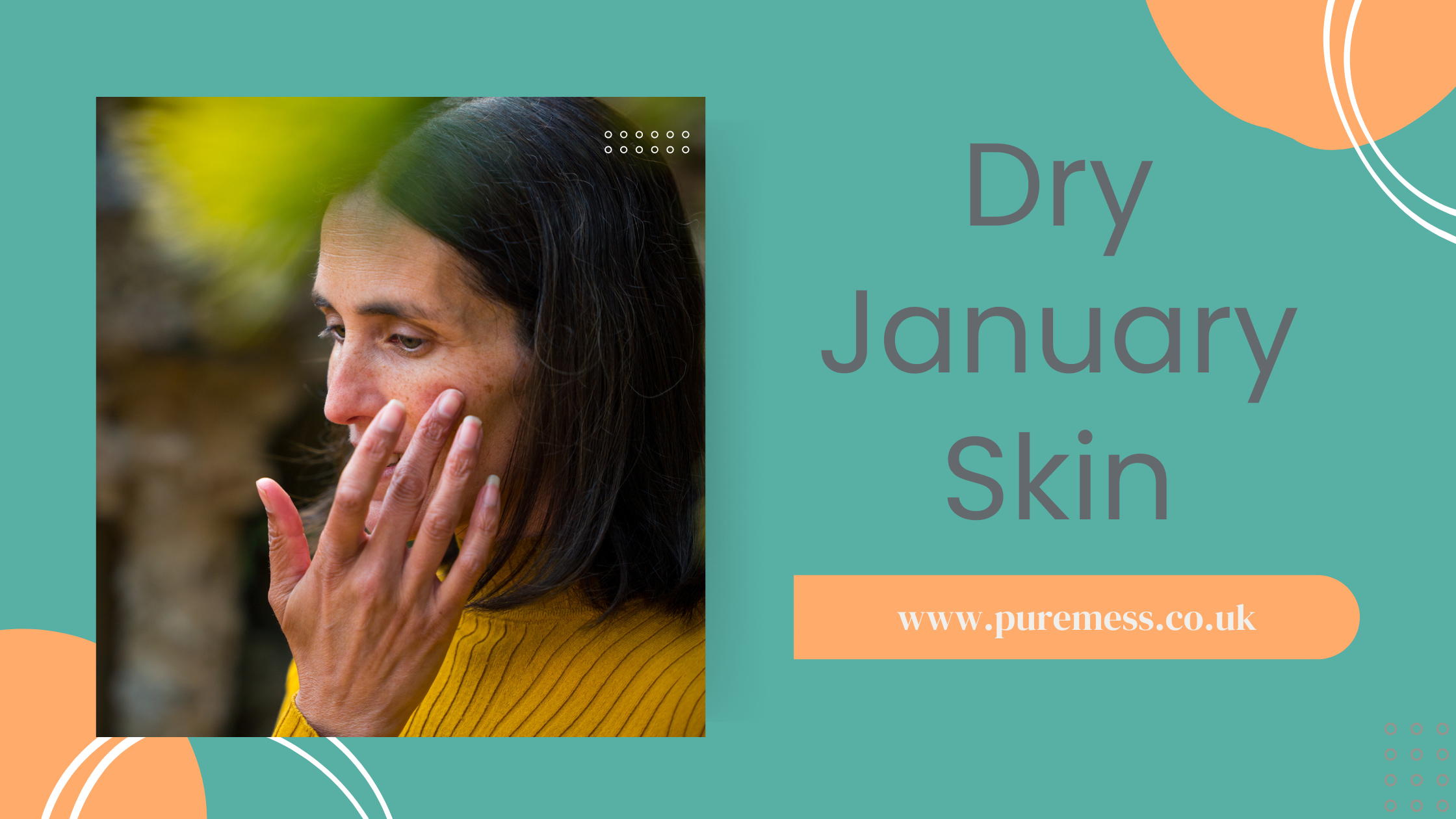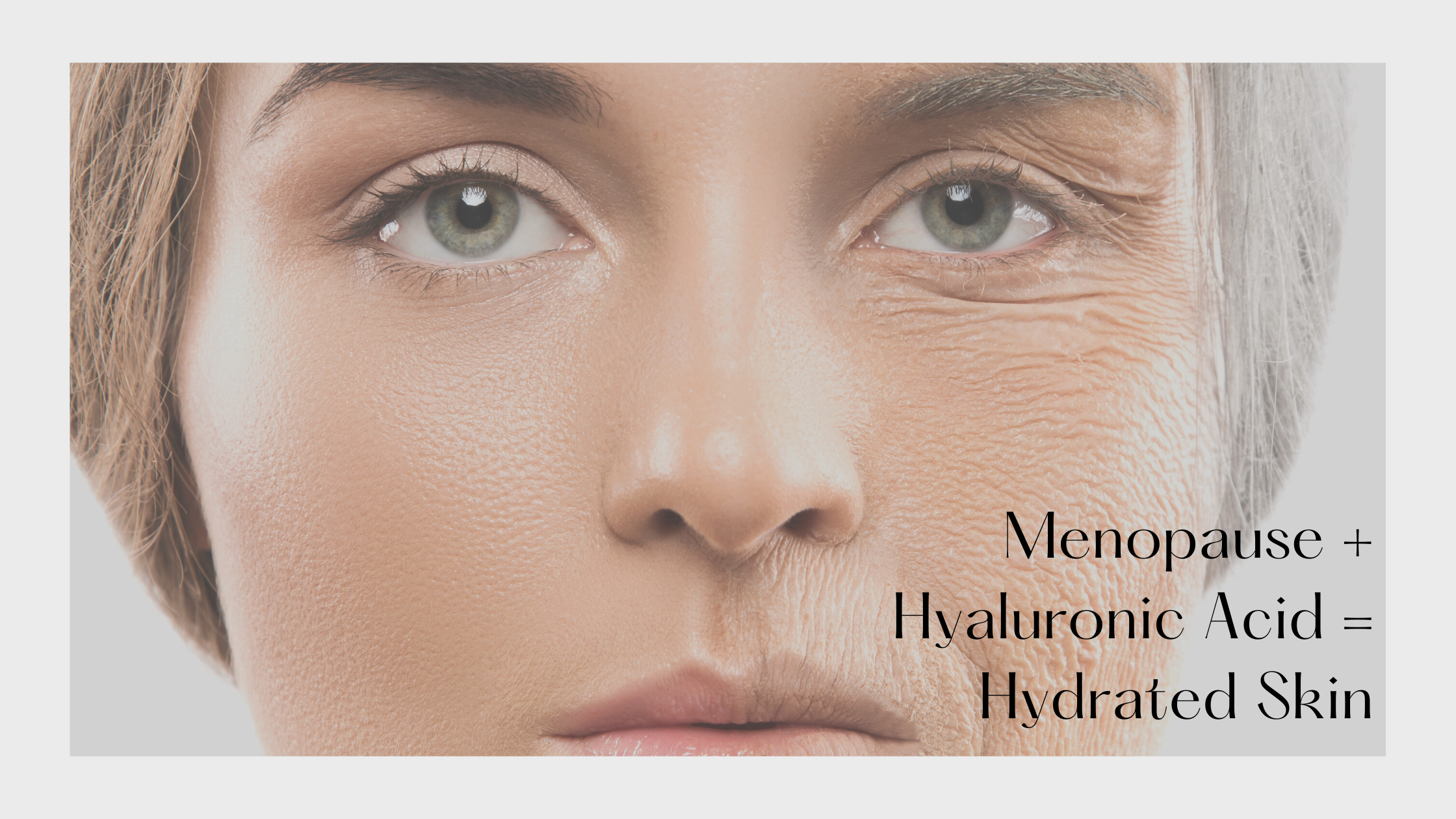
'Dry' January Skin - and what you can do about it
Not only can the cold weather at this time of year start playing havoc with your skin, the after effects of a season of rich food and alcohol have a part to play too.
Let’s start with the weather! Cold weather is super tough on your skin because the cold temperatures and low humidity levels result in dry air that draws moisture away from your skin. Going from harsh winds to dry indoor heat worsens the problem, especially when there is a sudden temperature change. This can lead to irritated, sensitive skin. Skin conditions, especially eczema and psoriasis can really worsen at this time of year as well.
The surface of the outermost layer of the skin (epidermis) is called the stratum corneum, otherwise known as the skin barrier. The skin barrier is super important as it forms a layer of protection, preventing harmful toxins from entering the body. Moisture is essential for this layer to perform well. It is when the stratum corneum sustains damage that the skin appears dry or irritated.
During the Winter months there is less moisture available to the skin, heating is turned up, reducing humidity, cold weather, harsh winds and even rain can strip the skin of all of its natural, moisturising oils.
Signs of Dry January skin include:
- Itching
- Stinging
- Sensitive to the touch
- Flaking
- Redness
Now down to what we eat and drink! After the festivities of the season your body needs a break. Alcohol is dehydrating which means your skin has even less moisture than normal available to it, leading to wrinkles and dull looking skin. This dehydration also causes you to lose vital vitamins and minerals needed for healthy skin.
Drinking alcohol can also cause a flare-up of rosacea, a common skin condition that causes your face to turn red. Some studies even show that alcohol can raise your odds of getting rosacea if you don’t already have it. Drinking can also disrupt your sleep, and astonishingly, even two nights of bad sleep can cause skin dullness and fine lines to appear! Yikes!!
A diet high in sugar and processed food (hello Christmas goodies!) can lead to inflammation, acne breakouts and premature ageing of the skin. Excess sugar in your diet causes your blood sugar levels to rise, which in turn increases inflammation levels in the body, possibly leading to psoriasis, eczema and rosacea.
One of the most damaging effects of a sugary diet is that it makes your skin look prematurely aged because it breaks down collagen and elastin – the proteins that keep your skin supple and firm. No-one wants saggy, wrinkled, dull looking skin!
Have you ever been on a night out, or a spent a weekend eating and drinking rubbish? I bet you not only feel sluggish but your skin feels pretty yucky too. Blood sugar spikes like these trigger inflammation and cause pimples, zits, blackheads and whiteheads because your body is producing more sebum.

Dry and damaged skin needs moisture replenishment. It’s important at this time of year to keep your skincare routine simple so as not to overload the skin with unnecessary, harsh products. Calming cleansers (try our Oat & Mandarin cleanser), mild toners without alcohol in and super hydrating face creams and oils are all your skin needs. If you like using exfoliators consider turning to a softer konjac sponge and only use a face mask once or twice a month.
Fun fact!! Our Oat & Mandarin Cleanser can also be used as a face cream. The oat milk (which we make ourselves) along with castor oil moisturises, protects and helps boost collagen production, improves your complexion and reduces skin inflammation. Your perfect dry January skin treat!
Other things to try are:
- Use warm rather than hot water for showers / baths
- Use gentle sulphate-free products as sulphates can cause irritation
- Avoid rubbing your skin too hard when drying
- Use your body moisturiser immediately after drying your skin to lock in water
Use a thicker body cream – or try one of our Body Custards which forms a barrier against water loss (occlusive ingredients). These ingredients basically lock moisture into the skin – look out for shea butter, cocoa butter, rosehip oil and beeswax.
- Use products that contain hyaluronic acid in your daily skincare routine
- Make sure you use lip balm, especially when going outside
- Wear gloves!
A word about Hyaluronic Acid
The word is MAGIC! It’s really important to make sure your skin barrier is healthy so that it is in the best shape to respond to all the amazing ingredients in your skincare products. Hyaluronic acid, which is a humectant, attracts water to the skin, and is able to hold 1000 times its own weight, making it ideal for this time of year. We use this powerhouse ingredient in our Rejuvenating Face Cream, along with Pumpkin Seed and Jojoba oils because of their high vitamin, mineral and omega content which support the health and structure of the skin, reducing the signs of ageing.
So all is not lost after enjoying the excesses of the holiday season. Treat you and your skin kindly and Dry January doesn’t have to be dry after all.
Take care,




